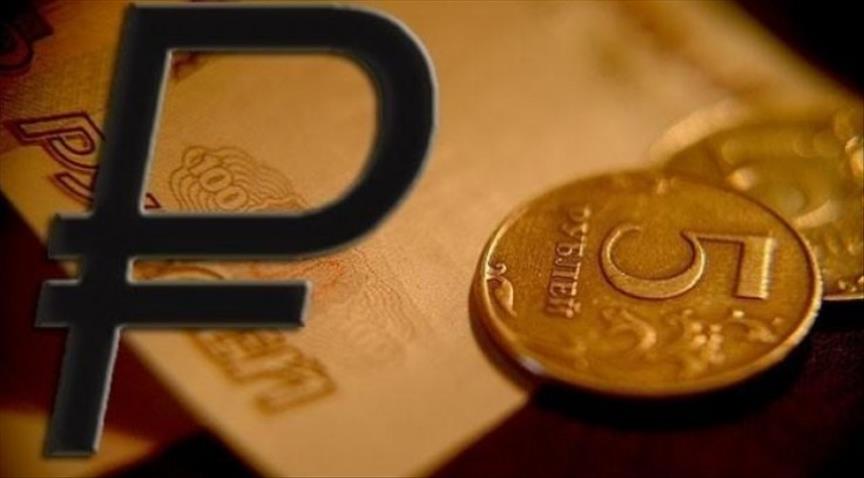Russia’s strategy to abandon the use of its foreign currency and gold reserves in an effort to save the falling ruble could be a critical move that protected the Russian economy going from bad to worse, experts say.
The Russian Central Bank announced in late 2014 that it was foregoing its policy on using foreign currency and gold reserves to support the country’s currency, which lost more than 50 percent of its value after oil prices started to fall since mid-2014.
“It had become clear that the Russian Central Bank was throwing good money after bad in a futile effort to support the ruble,” Chris Weafer, partner of Moscow-based consultancy Macro Advisory told the Anadolu Agency.
“It simply wasn't working and to continue the practice would risk a fast depletion of reserves and the country could have run out of money within 12 months,” Weafer said, adding that the bank was left with no choice but to abandon the previous and wasteful policy.
The Russian Central Bank spent $67 billion until the end of 2014 to stem the ruble's volatility, which failed as the currency’s fall could not be stopped in parallel with the drop in oil prices.
However, China, Saudi Arabia and some OPEC countries continued selling their currency reserves to cope with a tumultuous global economy.
“The decision to stop intervening in the ruble market and to allow the currency to free float with the oil price actually saved the Russian economy last year,” Weafer said.
Underlining that the new policy left Russia in a more comfortable position than Saudi Arabia and other major OPEC states, where the decrease in oil prices caused a downward turn in their economies, Weafer said that the weak ruble was now a key part of the government's longer term recovery strategy.
The expert stresses that the “weak ruble strategy” is aimed at creating a more competitive economic base and attracting more investment in Russian manufacturing sectors.
In addition to building up its foreign reserves, Russian President Vladimir Putin is also known for his taste for gold.
According to the IMF, Russia, which is the world’s sixth highest in terms of gold reserves, purchased 356 thousand ounces of gold in February alone.
Data from the World Gold Council also shows that in 2015, Russia purchased 208 tons of gold, 36 tons higher than the previous year. Russia now has 1,447 tons.
“Russia knows that if your external revenues fall in line with oil, the country should tame its domestic consumption and imports to keep balances in good shape,” said Renaissance Capital analyst Oleg Kuzmin.
Kuzmin stressed that other strategies to prevent exchange rate depreciation could be very risky if you are not Saudi Arabia which is capable of withstanding oil price shocks thanks to its foreign exchange reserves built up to $600 billion during the years of higher oil prices.
“The recent Azerbaijan case supports this view,” the expert added.
In late 2015, Azerbaijan came to a point where it had to devalue its currency in the wake of falling oil prices.
The Azerbaijan manat has lost more than a third of its value against the dollar since then, although the country’s central bank has spent more than half of its foreign currency reserves trying to protect it from low oil prices.
By Emre Gurkan Abay in Moscow
Anadolu Agency
gurkan.abay@aa.com.tr


